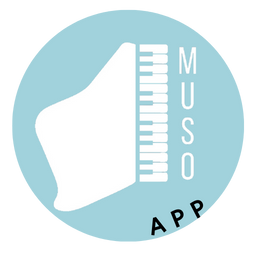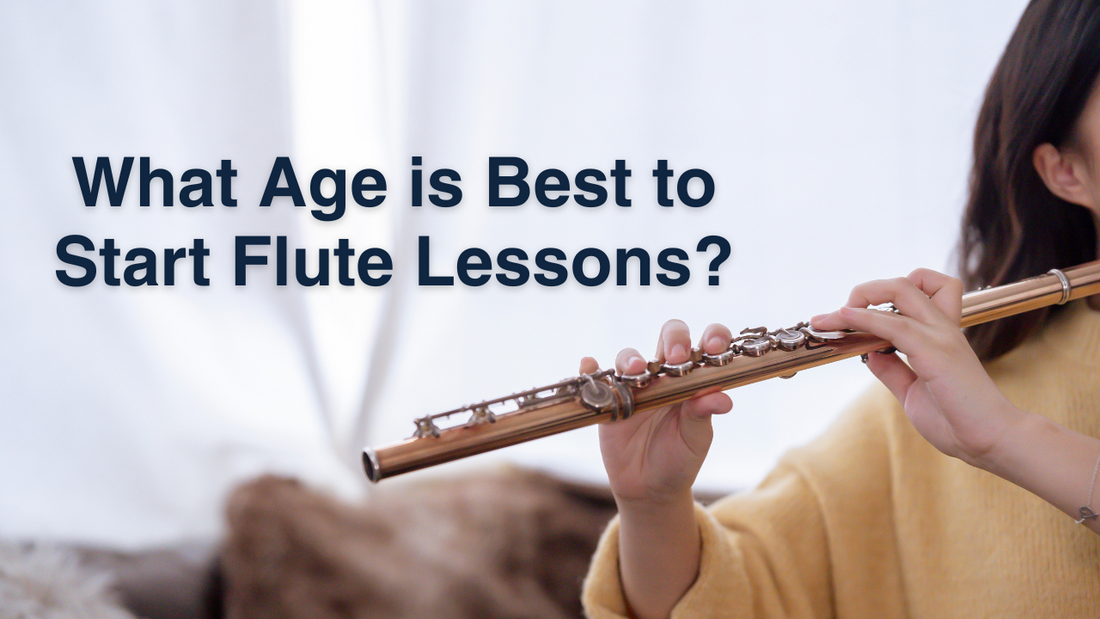Deciding when your child should start learning the flute can be a significant decision. While it largely depends on your child's individual growth and interest, several factors can help guide you in determining the best age for them to embark on their musical journey.
General Recommendations
Most experts suggest that the ideal age to start flute lessons is between 6 and 12 years old. At this age, children generally have developed the physical and cognitive skills necessary to engage effectively with the instrument. Some children may be ready a bit earlier or later, depending on their unique development.
However, like all instruments, if you start at 4 years old with a good teacher (such as one trained by Muso Method) - your child will generally get a head start and learning flute will be easier, in comparison to an older child who has lots of homework.
Easy Methods & Factors to Consider
Physical Readiness
-
Lung Capacity: The flute requires good breath control and lung capacity. A child should be able to take deep breaths and sustain a tone for a few seconds. If they can hold their breath for a short time or blow bubbles in water, they may be ready to start flute lessons!
-
Finger Dexterity: The ability to move fingers independently is crucial for playing the flute. If your child can easily manipulate small objects or do activities like threading beads, they likely have the dexterity needed.
Cognitive Development
-
Reading Skills: While proficiency in reading music is not a requirement, children should be able to recognize simple letters and numbers. Understanding the basics of musical notation will help them grasp lessons more quickly.
-
Attention Span: Children should be able to focus for the duration of a lesson. Typically, this ability develops around age 4 years old for girls, or 6 years old for boys. However, Muso Method teachers often use engaging methods, such as games, soft toy catches and 1min breaks, to maintain focus.
Interest and Motivation
A child's enthusiasm for learning an instrument is perhaps the most critical factor. If they show genuine interest in music and a willingness to practice, they are more likely to succeed in their lessons.
Easy Methods to See If Your Child is Ready
-
'Breath Control' Test: Have your child take a deep breath and blow gently on a piece of tissue paper. If they can keep it afloat for a few seconds, they have good breath control for flute playing. Another option is to blow bubbles.
-
'Finger Dexterity' Test: See if your child can independently touch each finger to their thumb in succession. This exercise helps gauge their finger movement skills.
-
'Musical Alphabet' Test: Ask your child to say the musical notes (ABCDEFG) forwards and backwards. This simple exercise will help assess their familiarity with music basics.
After these tests, visiting a music shop to try out a flute can be an excellent next step. Many shops offer free trials, allowing your child to see how it feels to play the instrument and ensuring it's the right fit.
Early Exposure to Music
While formal lessons may be best started around ages 8 to 12, exposing children to music at a younger age can be beneficial. Many students at Muso Music Academy in Perth who start at 4-6 years old love flute.
Activities such as listening to music, singing, and even watching performances can help cultivate a love for music and prepare them for future lessons.
Does My Child need to learn Piano first?
Not really actually. Although learning piano may help for the older kids, there's many 4 year old students who started flute first before learning piano.
Can My Child Start at 13 Years Old?
Absolutely! While starting earlier is often beneficial, many children begin learning the flute later and thrive. If your child has shown an interest in music and is motivated to learn, starting at 13 can still lead to success. At this age, they often possess greater focus and self-discipline, which can enhance their learning experience. We even have one student from Muso Music Academy in Perth who is off to complete their Music Degree for flute!
Should I Choose Group Classes or Private Lessons?
Because Muso Method always focuses on serious but fun learning, we always recommend 1-on-1 private lessons. The problem with group lessons is that the teacher often won't pay attention and be able to correct your technique - leading to many issues that takes years to 'undo the bad habits'.
However, when you do private 1-on-1 lessons, we also recommend flute students to join a Flute Quartet or a Flute Choir - as chamber music experience for woodwind instrumentalists is a fun and important part of the flute journey.
Please do not do school group lessons or avoid programs that do not focus on proper technique from the start. We can't stress enough on how early exposure to bad habits can make it difficult for students to unlearn those techniques later.
Conclusion
Ultimately, the best age to start flute lessons varies from child to child. While many children flourish starting between ages 6 and 12, it's essential to assess their readiness based on physical capabilities, cognitive skills, and enthusiasm for music. Encouraging a love for music early on can set the stage for a fulfilling musical education. Whether your child is 8 or 13, the journey of learning the flute can be an enriching experience, leading to a lifetime of musical enjoyment.

